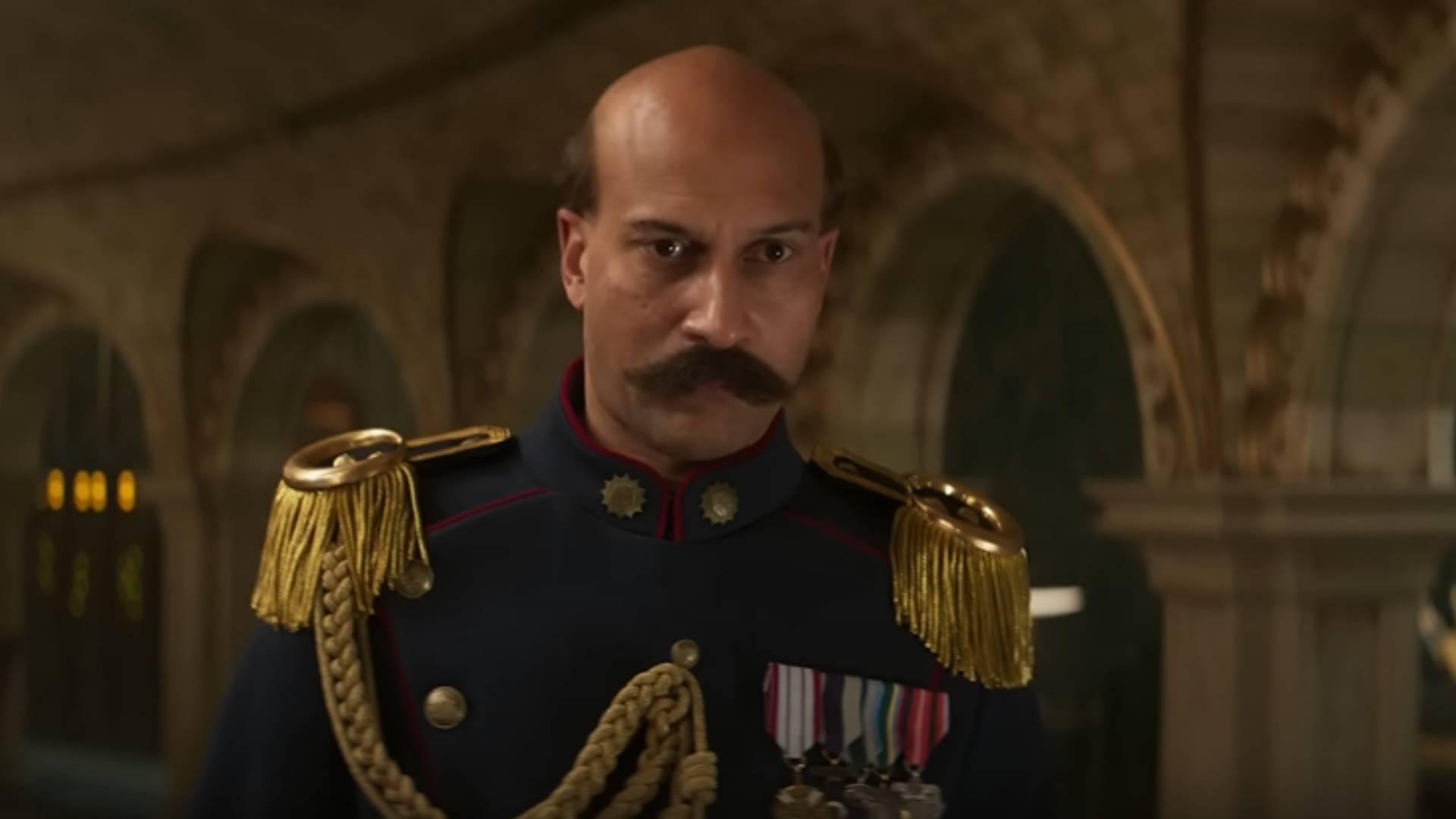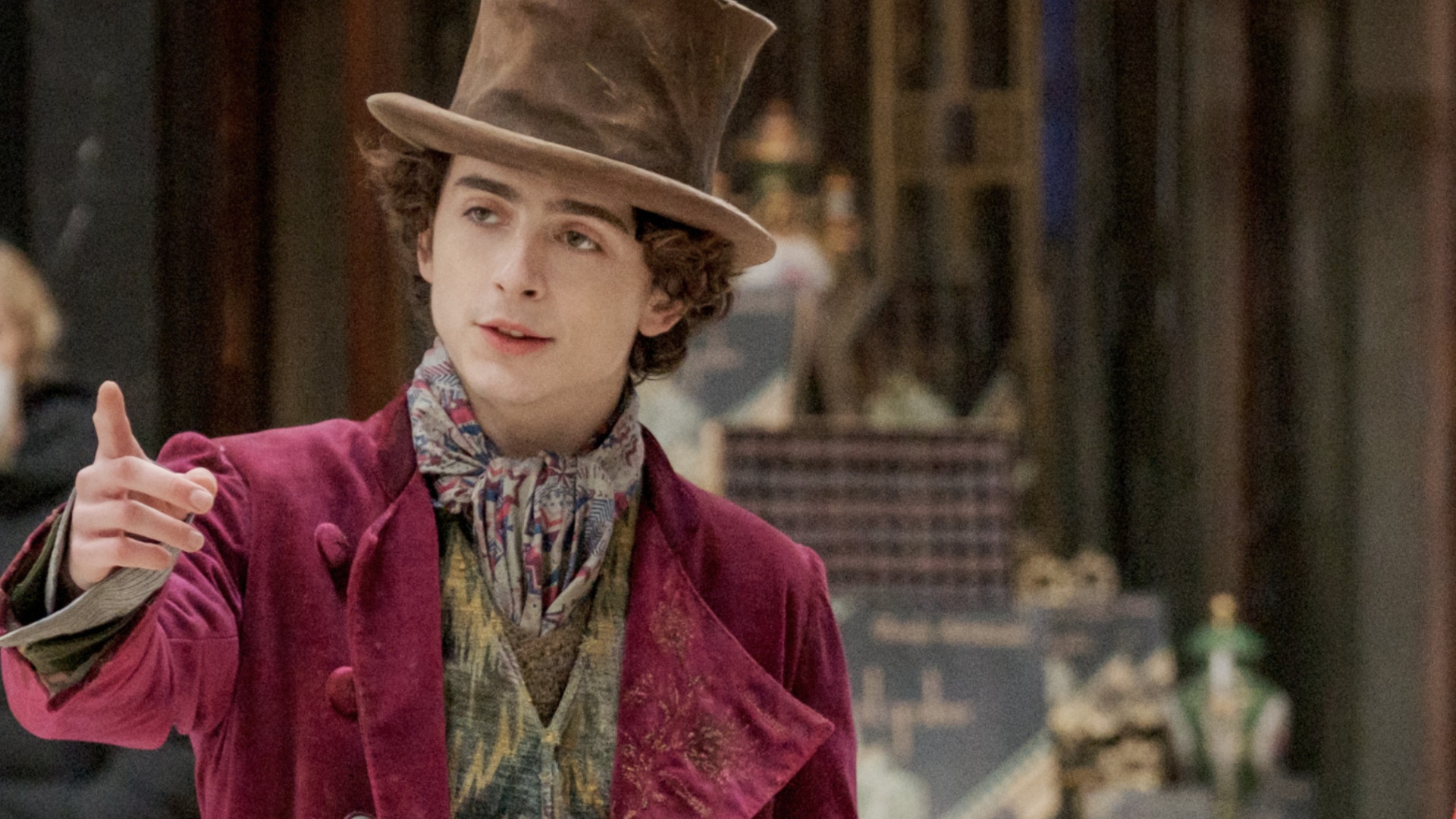
Paul King delves into the backstory of Roald Dahl’s eccentric chocolatier Willy Wonka with his new musical origin story. Starring Timothée Chalamet in the title role, Wonka takes viewers back to his early days, and charts how he goes from selling chocolate in a small shop to becoming renowned worldwide. The new fantastical film has been getting rave reviews and features an absolutely star-studded cast, including Olivia Colman, Hugh Grant, and Keegan-Michael Key.
Ahead of its release, Total Film had the opportunity to speak to Key all about his role as the Chief of Police in the movie. Here’s our conversation, edited for length and clarity.
Total Film: Tell me about your interaction with this story before you got this role. Is this something that you grew up watching or reading? Or is it something that’s been in the background with a cultural understanding of it?
Keegan-Michael Key: I would say probably more the latter than the former for me. Although I am a fan. I’m a big fan of the Gene Wilder film, the ’71 film, and I remember it being on specials on television.
So, I was excited, I think, as just any American kid would be. There’s something so heart-warming and yet devilish at the same time about Dahl’s work. That, to me, I think was very appealing. It’s almost a rebellious watch, to watch the show, in a way. And at the same time, to think of yourself as a kid who goes, "well, at least I don’t act like those kids." [laughs]
Yeah. "I’m not Mike Teavee."
Yes.
It’s interesting, there’s a sort of cruel edge to Dahl’s work sometimes, that’s quite delicious, a sort of nastiness. This meanwhile is coming from the pen of someone who’s created Paddington, which is just pure delightfulness. Can you sort of give me an idea of what we might expect in terms of tone? Is there that element of the Roald Dahl sort of cruelty and nastiness that we enjoy? Or is it that Paddington sweetness?
It’s a bit of a hybrid, if one can even say that, because it seems that they are almost diametrically opposed to each other in a way. Paul King, our director, is just a walking heart – he really is. He’s just a lovely, sensitive man. I think that even he was trying to infuse a little bit of that cruelty so that we would be honoring Dahl in that way.
Without giving away too much, I would say that my character – how shall I say it – in a manner of speaking, holds up the Dahl mantle. Or the experiences that my character goes through in the film, carry that Dahl-ist… You know what I’m saying?
Yes, I do. He’s the sort of Miss Trunchbull of Matilda, or the ghastly aunts of James And The Giant Peach. He’s sort of that grotesque meanie that gets a comeuppance, I hope.
Yes [laughs].
Not that you’ll say.
Yes, there is that sense of Dahl-ism that runs through the piece. But at the same time, there is such a heart-warming kind of innocent, eye-opening delightfulness. I think you used the term "delightful". There is a delightfulness, which is, in and of itself, very delicious, the delightfulness – the Kingian hopefulness that you would see in Paddington. But unlike Paddington, not everybody in this world is kind. Not everybody in this world is well-meaning.

Do you think that this is just the right time for a film like this? We’ve all been through the pandemic and everything, and we’ve come out of it maybe yearning more for kindness and sweetness. And although you say there’s this Dahl-ian cruelty to it, it is essentially a treat – an actual cinematic treat like anything Wonka might create. And as audiences, we’re craving that?
I do believe that we are craving that. It’s almost like we were in the pandemic, and so now, in a manner of speaking, we have an opportunity to share kindness with others, face to face. So, let’s go out there and do that.
Well, I certainly hope so. That’s my feeling. As we’re commingling again, and as we’re bumping elbows again, and as we’re feeling each other out again in this social dance that we call life, we have this opportunity to not only reconnect but reconnect with kindness. I think that this picture is going to be a perfect example of that.
I know I keep saying this like a broken record, but there’s this sense of hopefulness that’s in this. And the fact that it’s not just Willy, but the film itself has an indomitable spirit. I hope people walk away from the cinema in a more buoyant place than they were when they walked in.
Lovely. Yes, please. Sign me up. I’ll have two tickets, over and over again. Just finally, what is your actual favorite chocolate?
My favorite thing to eat? There used to be – I don’t know if you guys still make them – but there used to be a Cadbury’s raisin and nut bar.
Fruit and nut?
Yes, fruit and nut. A Cadbury’s fruit and nut. I grew up very close to Canada, which is Britain-lite [laughs]. I grew up about 10 minutes from Canada when I was a kid, and my parents and I, sometimes, we’d go over the border, and then you could get proper chocolate. You can get Cadbury’s chocolate. So, that was always my favorite thing.
Wonka arrives in UK cinemas on December 8 and US theaters on December 15. You can also check out our interview with leading man Timothée Chalamet, and keep your eyes peeled for more chats with the cast and filmmakers on the site and on the Inside Total Film podcast later in the week.







